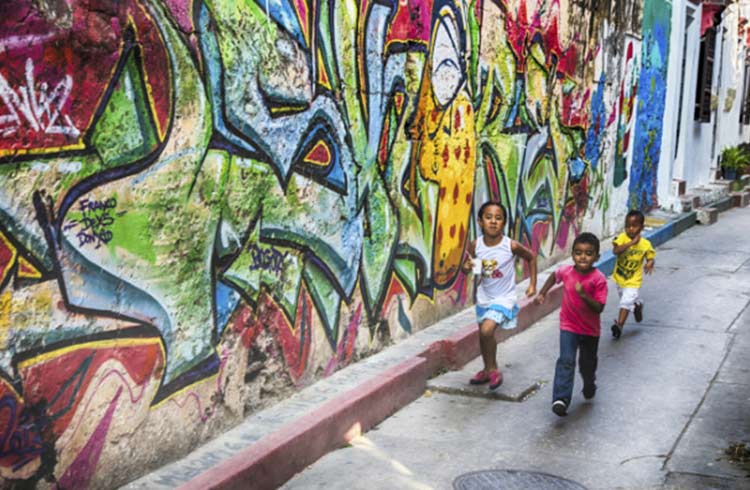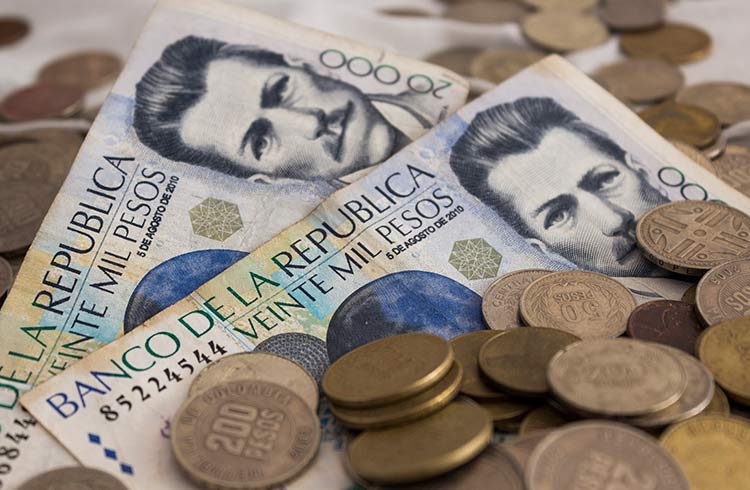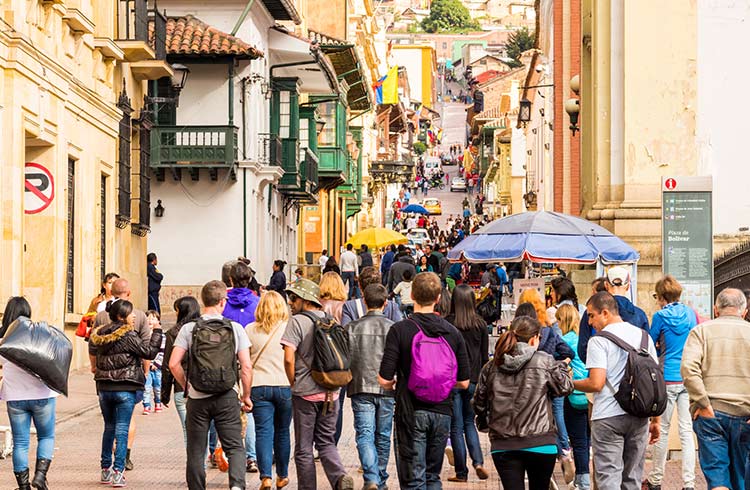Is Colombia Safe for Travelers? 6 Essential Safety Tips
Is Colombia dangerous? Should you worry about protests and express kidnappings? We debunk the myths to show you Colombia's safer side.
 Photo © iStock/garytog
Photo © iStock/garytog
Colombia, a vibrant South American country once known for drug wars and kidnappings, has undergone a remarkable transformation in recent years. While its past may still linger in people's minds, today's Colombia is a favorite destination among adventure travelers, offering rich culture, stunning landscapes and a welcoming atmosphere.
So, is Colombia safe to visit? The short answer is yes – as long as you stay aware, avoid high-risk areas, and follow basic safety precautions. Colombia can offer some of the most memorable experiences in South America.
- The reality of safety in Colombia
- Safety tips for avoiding crime in Colombia
- Emergency numbers in Colombia
- Political stability
- Safe and popular destinations in Colombia
- Kidnapping in Colombia: Should you be worried?
- Video: Why you shouldn't do cocaine in Colombia
The reality of safety in Colombia
While Colombia's crime and kidnapping rates have significantly decreased in the last few decades, it's essential to exercise caution. Petty crimes, such as pickpocketing, phone snatching, and muggings are common in crowded areas and on public transportation – particularly in larger cities like Bogotá, Medellín, and Cali.
Though Colombia is reasonably safe for tourists, certain regions remain off-limits due to the risks of kidnapping and other crimes. Currently, the US State Department has a Level 3: Reconsider Travel advisory for Colombia, and a Level 4: Do Not Travel warning for the areas around the Venezuela and Ecuador borders, as well as regions like Arauca, Cauca (excluding Popayán), and Norte de Santander. The early months of 2025 showed an increase in hostilities between guerilla groups, especially in Norte de Santander.
Safety tips for avoiding crime in Colombia
A well-known Colombian phrase, "no dar papaya," essentially means "don't make yourself an easy target." It’s good advice for any traveler. Here’s how to apply it:
- Blend in. Colombians, especially in cities, tend to dress well. Avoid standing out by dressing like a local – ditch the hiking pants and flip-flops for jeans and a casual, stylish shirt.
- Limit valuables. Keep your phone, wallet, and cards hidden, carry only the cash you need for the day, and leave important documents, like your passport, in a safe place..
- Stick to safe transport. Always use official taxis, ride-hailing apps, or public transportation that your accommodation recommends.
- Avoid rural roads at night. Stick to well-lit and populated areas after dark.
- Stay away from drugs. Colombia’s drug history may seem intriguing, but asking for or using drugs here can put you at serious risk.
- Avoid using your phone in the street – step into a café or shop instead.
- Avoid walking alone at night in poorly lit or unfamiliar areas.
Learn how World Nomads travel insurance could protect your trip to South America.
Emergency numbers in Colombia
- Tourist police: dial (1) 3374413
- National emergency number (24-hour general line): dial 123
- Medical emergencies: dial 125
- Fire: dial 119
- American embassy emergency number: dial (1) 2752000
Political stability
Gustavo Petro, Colombia's first leftist president, took office in 2022, ushering in a period of change.
While his election initially calmed much of the civil unrest, the political situation in Colombia remains dynamic. Demonstrations and protests can occur, though they are generally peaceful. However, as a traveler, it's essential to avoid large gatherings, as protests can escalate without warning.
Stay informed by following local news and avoid protest areas to ensure your safety.
Safe and popular destinations in Colombia
The good news is that many regions of Colombia are considered safe for tourists. Top destinations include:
- Bogotá: While the capital city has its rough areas, it also offers world-class museums, vibrant neighborhoods like La Candelaria, and a bustling culinary scene.
- Medellín: Once infamous for its cartel violence, Medellín has transformed into one of the most innovative cities in the world, offering breathtaking views, vibrant nightlife, and friendly locals.
- The Coffee Region: Quindio, Risaralda, and Caldas are known for their lush coffee plantations, charming towns, and stunning natural beauty.
- Caribbean Coast: Cities like Cartagena, Barranquilla, and Santa Marta boast beautiful beaches, historical architecture, and a lively atmosphere.
- Pacific Coast: Eco-tourism is booming in Nuquí and Bahía Solano, known for their biodiversity and opportunities for whale-watching and jungle treks.
When traveling to less-touristy destinations, make sure you book with reputable tour companies and hire knowledgeable local guides. Always ask locals or your hotel staff which areas to avoid, and follow their advice.
Kidnapping in Colombia: Should you be worried?
Kidnapping rates have dropped significantly over the past decade, thanks to improved security measures and the peace agreement between the Colombian government and rebel groups like the FARC. The risk of being kidnapped in major tourist areas is low. However, venturing into remote or conflict-prone regions increases your risk, so stick to well-traveled areas and avoid government-designated "do not travel" zones.
What is "Secuestro Express"?
"Secuestro express," or express kidnapping, remains a rare but existing crime in Colombia. In these cases, criminals abduct someone for a short period, forcing them to withdraw money from ATMs. The most common scenario involves flagged taxis, where criminals jump in and force the victim to comply.
To stay safe, always:
- Use ride-hailing apps like Uber or officially marked taxis called from hotels or taxi stands.
- Avoid entering taxis that already have passengers inside.
- Consider carrying a second, low-limit credit card for emergencies.
Video: Why you shouldn't do cocaine in Colombia
Related articles
Simple and flexible travel insurance
You can buy at home or while traveling, and claim online from anywhere in the world. With 150+ adventure activities covered and 24/7 emergency assistance.
Get a quote

7 Comments
Just came home from Cartegena. 13 family members went on the trip for 8 days. If you do not speak Spanish, you will struggle. The country does not cater to Americans and Europeans but does cater to other South American visitors. The nicest Colombians we interacted with were at our hotel, this was mostly the activities and acquatics workers.
Several times during the trip we felt uncomfortable in the old city. I would never recommend an American woman travel to Cartegena alone. Please take a few friends on the trip with you. There are a lot of scammers in Colombia, so you have to be smart and cautious or you will lose your money. We were scammed by an English speaking tour guide, but we booked our tour through the hotel, so we got our money back.
The beach is dirty, the Atlantic Ocean water is very cloudy, and Cartegena and the surrounding areas are extremely dirty. There is trash everywhere. Dogs and cats are treated like rodents. The number of underfed dogs and cats we saw on the trip was overwhelming. If you love animals, seeing the horrible way dogs and cats are treated will break your heart!
Overall the trip was fun and interesting, but we are not in a big hurry to return to Colombia any time soon!
I was drugged and robbed in Bogota a few years ago during my naive fist trip to Colombia/South America. When I think back I feel happy that I wasn't killed I was robbed - my wallet, my rolex, all my credit cards. I recall even giving them my pin numbers. I recall vaguely how I walked back to my hotel room. Next morning I overslept and missed my flight and people waiting for me at the LAX went crazy when my plane landed and I didn't show up. I returned safely on the same day with an afternoon flight. However, I had short term memory problems for several months after the incident. When seeing my friends or colleagues, I could not recall their names. Later, I gained my normal memory. I've been to many places in Colombia and South America since my first trip in 2010. All major cities in Colombia still have serious crime issues. I would say Colombia is much more dangerous than Rio de Janeiro's favelas because the Colombians use drugs and all kinds of "sophisticated" techniques to spike your drinks in bars and discos, or it could be a street beggar, or a senior/handicapped person, and so on. Even South Central Los Angeles will seem much safer. Sadly due to overall poverty in Colombia + still ongoing conflict with the militias in the jungles, despite the Catholic religious ethics - every Colombian praises Jesus Christ, there are many Colombians ready to kill you for your wallet or your brand new iPhone. I would not recommend Colombia for single travellers at all. Never should go out alone, always with friends you trust. The criminals operate especially in places where there are lots tourists who can't imagine how cruel the others can be especially when it comes to US$ or the last high-tech gadgets. The article refers to the French government's lift of travel ban to certain regions. I'm not sure how safe is the french ok.
When you say use common sense would you mind being a little more specific. My lady friend (she lives in Cali) will be with me. We are staying at a place I got on AirBNB. Thanks, Joe Mancini
I'm SO glad there lots of you out there that speak in behalf of Colombia.
It's a wonderful place to live and visit.
As many pointed out, common sense is your best safety. In Colombia and anywhere. (By the way, why do detractors mispell Colombia? It's ColOmbia, not ColUmbia). Maybe they are mistaken and it's ColUmbia which is dangerous.
I’m from Colombia 🇨🇴 living in the US, it’s safe overall but best advice is “no dar papaya” ;)
I visited Cartegena for two weeks in March… I felt safe at all times although one does have to use common sense… I visited the touristy areas, went on day trips using reputable tour companies often times being the only American…I would like to visit Medillin and Bogata in the future… the Colombians I met were kind and hospitable…
To say that pickpockets, purse snatching and mugging is common in Medellín is completely false. If you want to go hunting hookers and drugs, then you may have some problems. But the metro, walking down the streets, is very safe. But as someone has mentioned already, don’t be a papaya. It’s a big city. Much more prosperous than you might think.
Speaking Spanish is good, but Google Translate cures all!